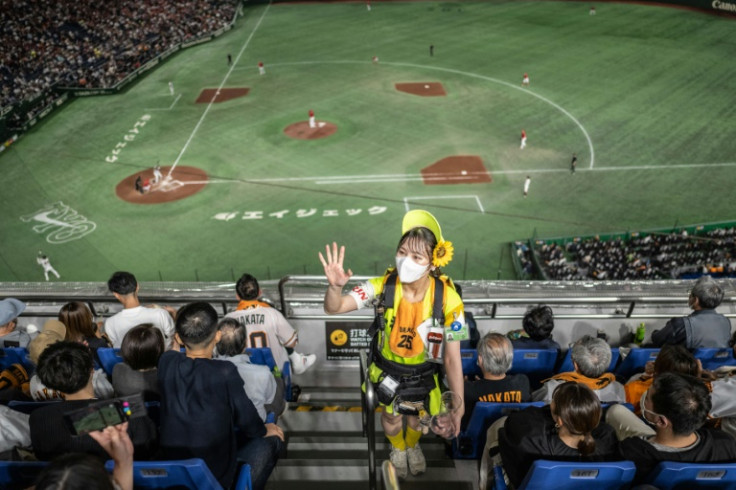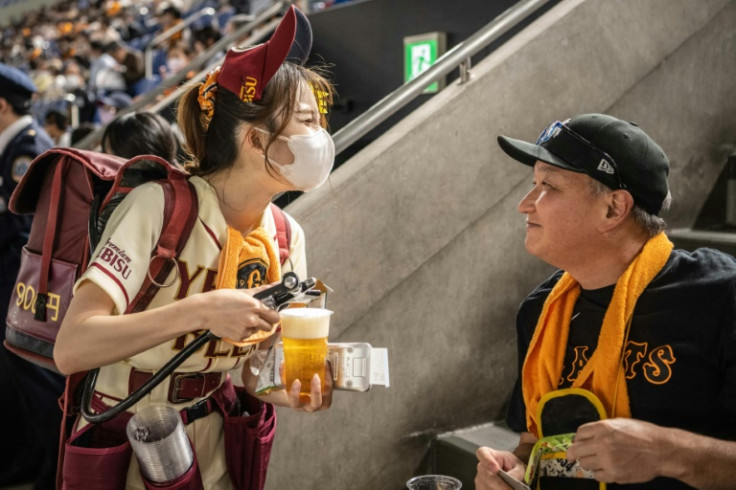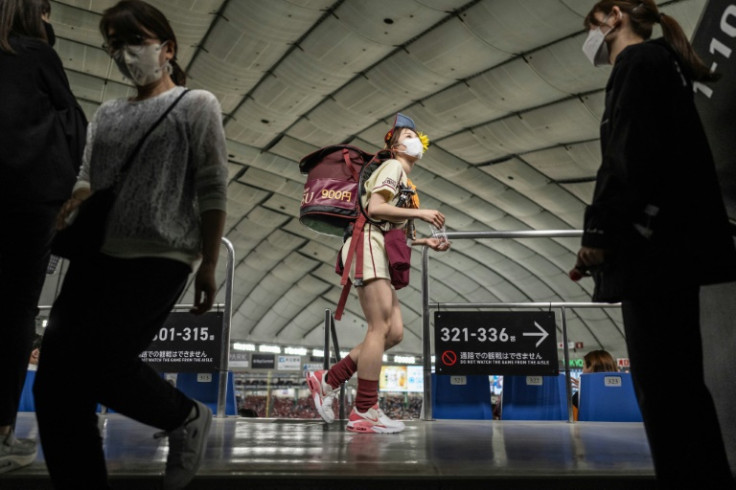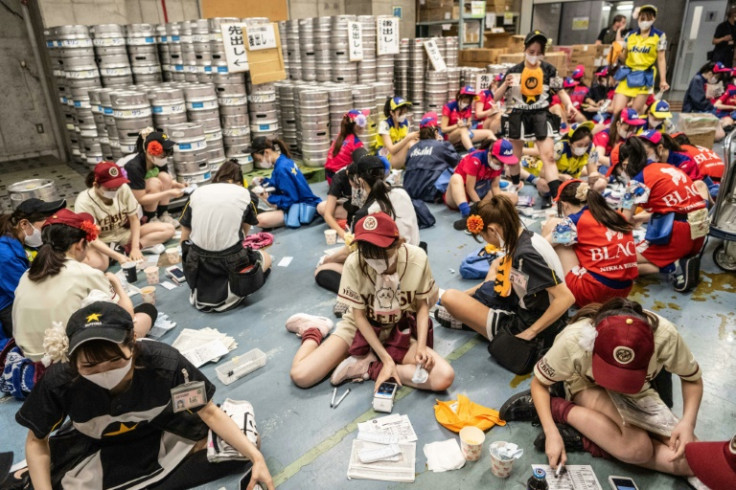Speed Demons: The 'Uriko' Beer Vendors Of Japanese Baseball

In between chanting fans at Japan's Tokyo Dome baseball stadium race an army of women in fluorescent uniforms carrying unwieldy backpacks with attached spray-guns.
These are the "uriko" -- beer vendors who are as unique to Japanese baseball as the cheering sections that beat drums and blow horns to rally their teams.
Made up almost exclusively of young women in miniskirts or shorts, the tradition might appear outdated to some, like the cheerleaders who somersault onto the field between innings.
Japan has had its own low-key #MeToo movement, and women in recent years have challenged everything from high heels at work to traditions requiring they serve tea to colleagues.
But the uriko remain a firm favourite with fans of Japan's most popular sport, which attracts a diverse crowd of men and women, as well as many families.
Honoka Hagiwara, who carries a keg weighing up to 15 kilogrammes on her back for upwards of three hours at a time, said she was attracted by the job's "glamorous" image.
"I've been doing it for just over a year now and I've got much more used to it," the 22-year-old told AFP.
She concedes it was "physically very tough" at first, but now enjoys the highly competitive job, with over 100 rivals working any given game.
At Tokyo Dome, home to Japan's most popular baseball team, the Yomiuri Giants, vendors sell an average of about 20,000 glasses of beer at a night game.
All the stadium's vendors are women, though some men are employed at other stadiums in Japan.
It used to be the other way round -- until the 1980s, most vendors were men who walked around stadiums selling beer from flat tables slung around their necks.
Tokyo Dome insists the job is still open to anyone.
"There is not and will not be any obstacle standing in the way of men being employed," a spokeswoman told AFP.
But "around 100 times more" women apply than men, "so the result is that there are no men."
Uriko Mariko Matsumoto says she enjoys interacting with fans, and has built up a relationship with regulars.
The 25-year-old said she treats her customers the way she wants vendors to serve her at a game.
"I like going to watch baseball games myself and when I see a vendor smiling, it makes me want to buy a drink."
But not all vendors have such a positive view of the job.
One former uriko described the job as "creepy, creepy, creepy", on a blogging site hosted by the Asahi Shimbun newspaper.
"It didn't take me long to realise that I wasn't only selling beer and snacks -- I was selling myself," said the author, who complained of customers asking to take her photo and giving her unwanted business cards with their contact information.
Security is on hand should drunk supporters get out of line but trouble is rare at Japanese baseball games, which are a family day out for many.
Matsumoto says her main concern is sales, and she is "always thinking" about her figures.
"You're paying attention to how much the others have sold and you're also thinking about your own numbers, trying to sell more than you did the day before," she said.
Commission-based wages means it pays to work fast, although Hagiwara insists that not keeping the customer waiting is the "top priority".
While vendors are technically not allowed to run in the stands or on the stadium concourse, they are often seen racing from customer to customer.
They are easy to spot in brightly coloured uniforms and artificial flowers in their hair beneath high-brimmed caps.
Some wear knee pads, as they have to bend down while serving to avoid obstructing the view.
They change kegs around 10 or 12 times a night with a speed that would put some Formula One pit stops to shame.
As support staff lift out the empty keg and replace it with a new one, vendors barely have time for a sip of cold tea -- and sitting down for a breather is out of the question.
Vendor Hagiwara thinks more men should try the job, but not everyone at Tokyo Dome was so sure.
"A man? I've never thought about that," said Sachiko Shibuya, 64, watching the game with her friend.
Yoshie Eki, 59, said she wasn't bothered who was dispensing the drinks.
"If I'm coming to the ballpark, I'm going to buy beer -- it gets you more in the mood."




© Copyright AFP 2024. All rights reserved.







